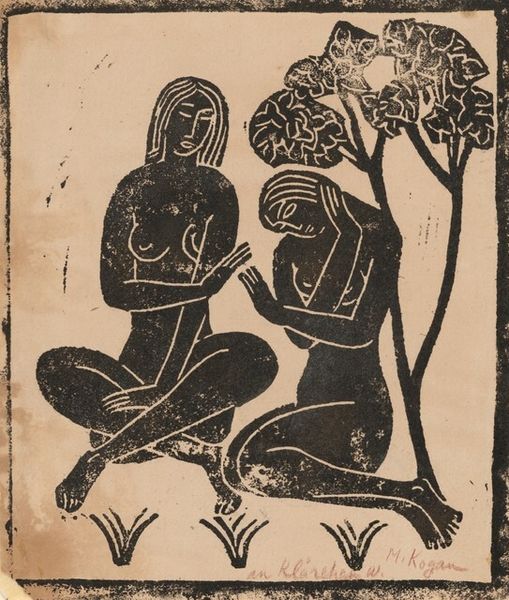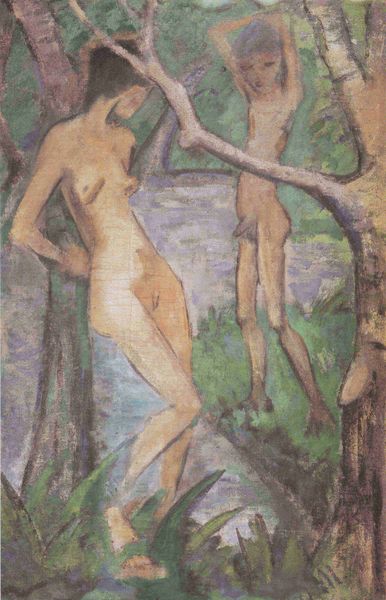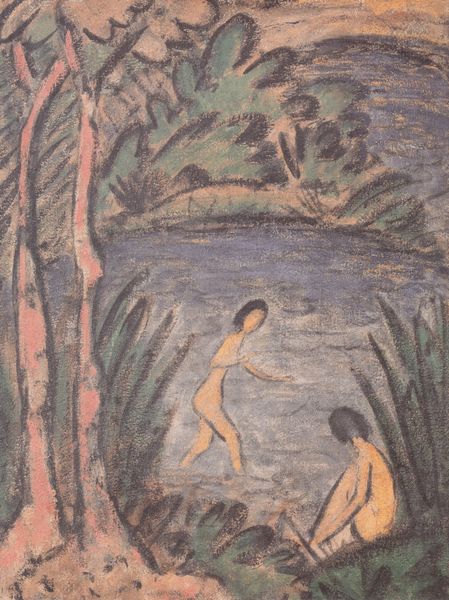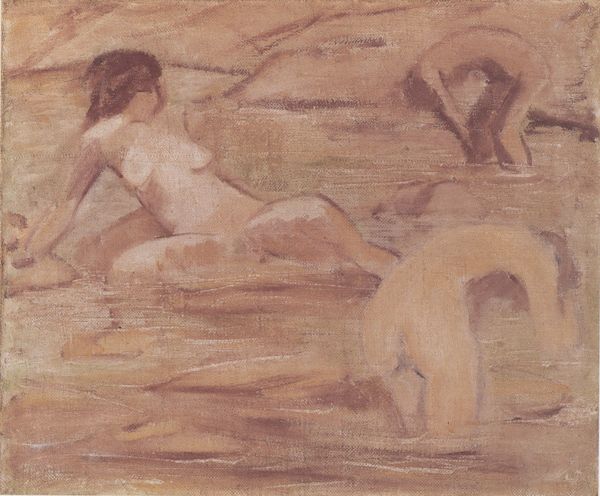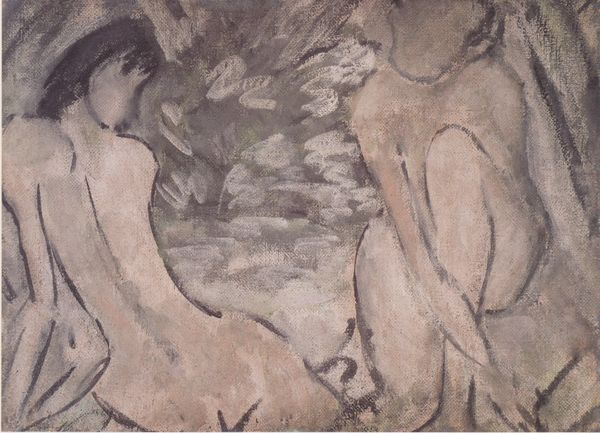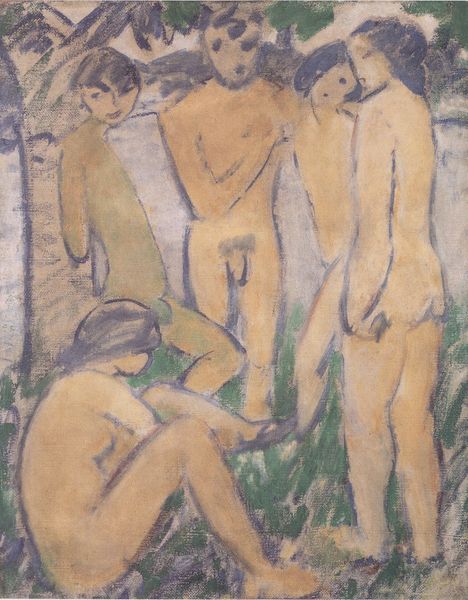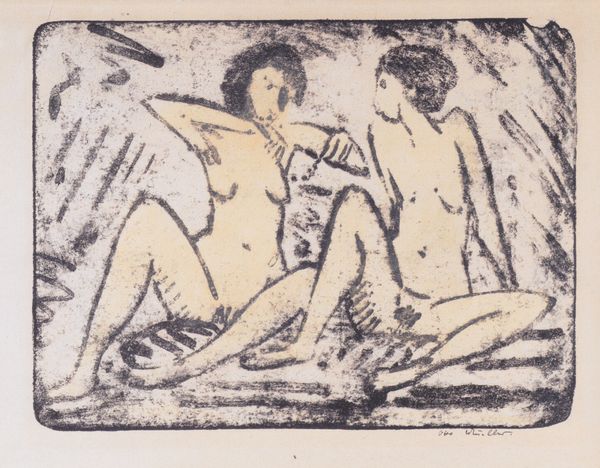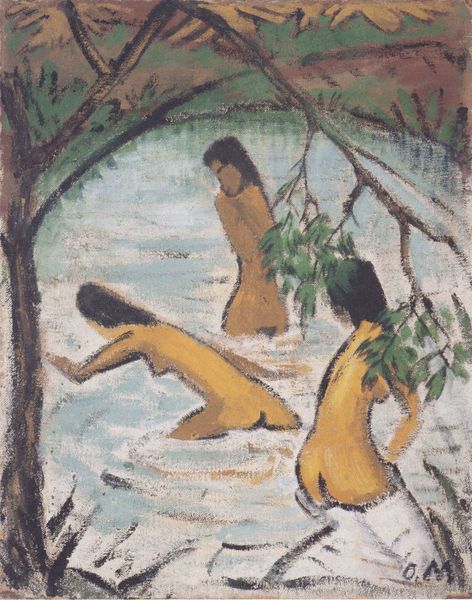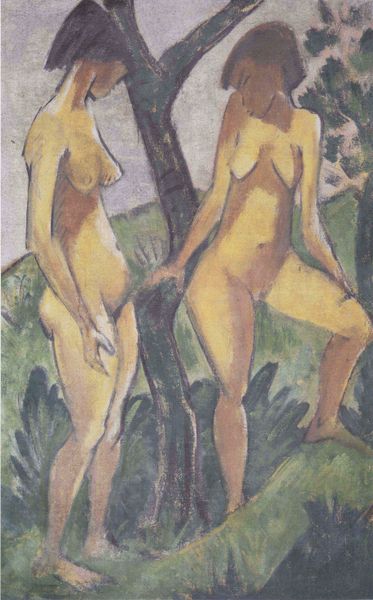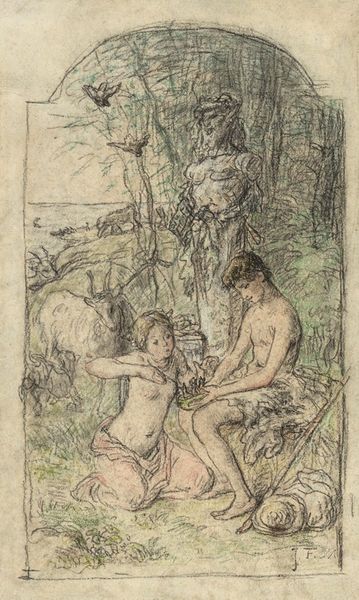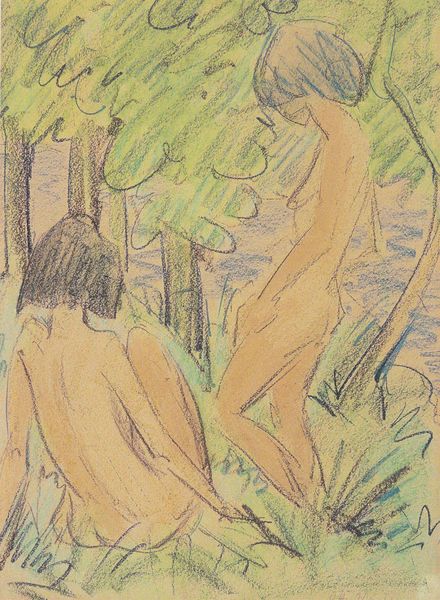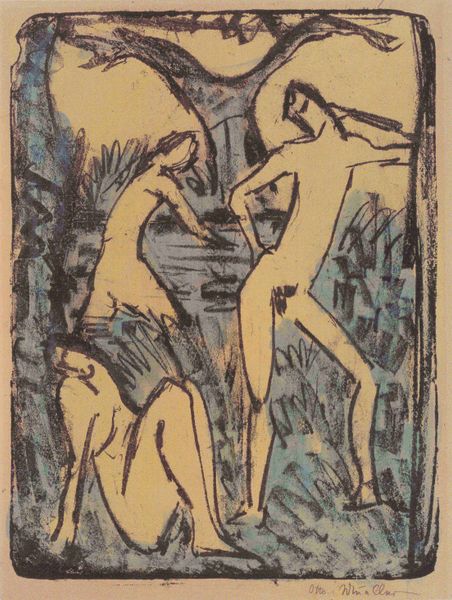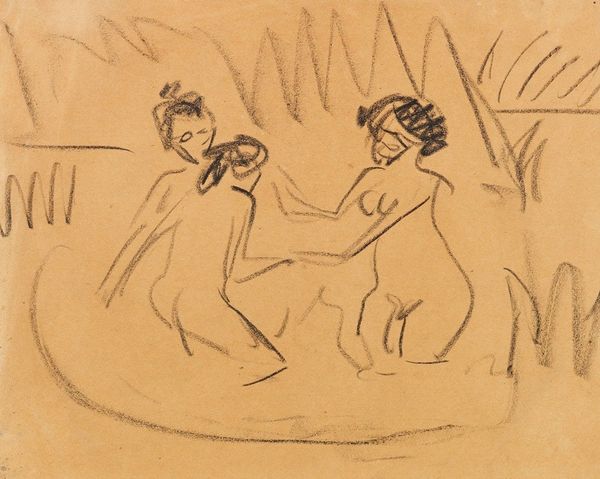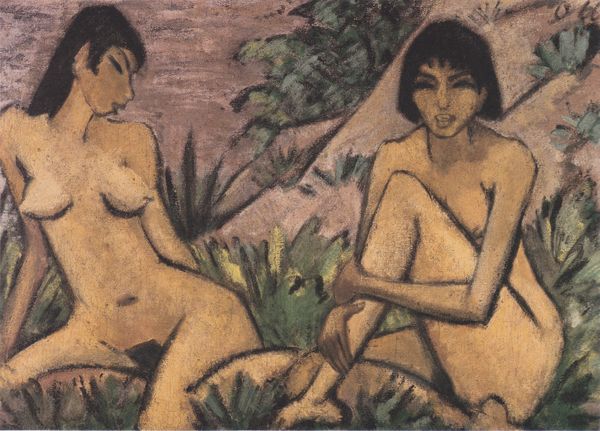
pastel
#
figuration
#
coloured pencil
#
expressionism
#
pastel
#
nude
Dimensions: 90 x 105 cm
Copyright: Public domain
Editor: Here we have Otto Mueller’s "Badende" from 1911. It's rendered in pastel and colored pencil, and portrays figures in a landscape. It's immediately striking to me how the rough application of the materials contrasts with the serene subject matter. What do you see in this piece, from your perspective? Curator: For me, it's fascinating to consider how Mueller, embedded in the Expressionist movement, grapples with the artistic conventions around representing the female nude. These aren’t idealized figures of classical art. Instead, they’re rendered with this very particular pastel technique – a somewhat cheap, readily available material – emphasizing the body as something materially present and perhaps, readily available for the male gaze. What does it mean to produce "fine art" using materials historically relegated to sketching or "lesser" forms? Editor: So you are saying his choice of materials democratizes the subject and challenges the elitism of art production? Curator: Precisely! Think about who had access to oil paints versus pastels at the time. This connects with broader social movements questioning hierarchies of labor and value. Look closely: The texture reveals a specific kind of artistic labor, repetitive and almost rough. He's making "high art," but through a kind of industrial crafting logic. It questions the division between artisan and "fine" artist. Editor: I didn't initially see it that way, but I get it. He's commenting on not only the representation but also the commodification of art itself. Curator: Exactly. And even potentially of the human form. By foregrounding the material reality of its production, he lays bare the social forces always at play within even the most seemingly “natural” of art subjects. Editor: That's a fascinating point about bringing social and economic context into our understanding. Thanks, that has really changed how I view the piece!
Comments
No comments
Be the first to comment and join the conversation on the ultimate creative platform.
